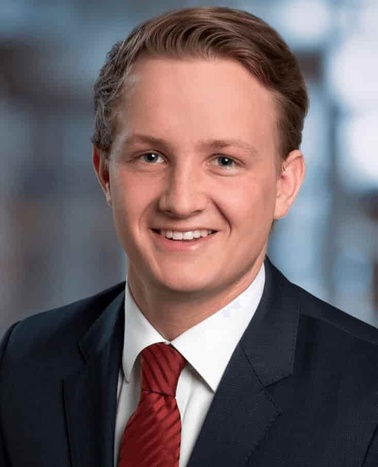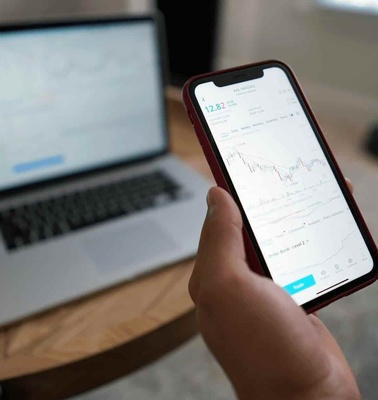
Marvin Müller
I was born and raised in Frankfurt, Germany—which also happens to be the city with the country’s biggest airport. I love this fact because I’ve always enjoyed flying and traveling, so much so that I had visited over 20 countries before graduating high school. I often wonder how I ended up studying finance, especially because neither of my parents worked in a related field. But I think it began with my interest in the stock market and high school startup competitions. Driven by what I had learned, I decided to see what it was like to be part of the world of work via internships in law offices and in a private bank in Zurich. These internships solidified my decision to pursue a career in finance, and I took off on yet another adventure.

"The Master in Finance equipped me with the required technical skills, but more importantly, taught me the importance of the strategic side of private equity."
An interest turned into a passion
Currently focusing on mid-market private equity transactions, Marvin is able to leverage his prior experience in his position as a private equity associate at Trilantic Europe. During his three-year undergraduate program, he worked with a German bank specializing in smaller enterprises.
He rotated through almost every department and eventually fell into the world of corporate finance. After completing his undergrad, Marvin interned with Société Générale, Lazard and 3i Private Equity. These internships left him wanting to explore the world of finance and private equity further.
Marvin knew the benefits of practical experience and sought a master’s program that would foster his continued desire to learn by doing. IE Business School stood out among the other programs because of the high number of electives offered—specifically private equity, entrepreneurship, creative accounting, strategy and finance, and turnaround strategies. Apart from this, he saw that IE Business School places a strong emphasis on preparing students with applicable skills for the working world through cooperation with former practitioners.
“IE Business School places a strong emphasis on preparing students with applicable skills for the working world through its cooperation with former practitioners.”
Spending most of his time working in mergers and acquisitions, Marvin was able to understand finance and equity capital markets before starting his master’s program. He was keen on learning more about private equity, and the Master in Finance equipped him with the required technical skills, while also highlighting the importance of the strategic side. The core curriculum offered financial modeling and quantitative finance courses. But Marvin noted that the electives were what set this program apart from those offered at other universities, because he was able to learn from the real-world examples of his professors. After completing the program, he worked for J.P. Morgan’s investment banking in London division for two years before moving to his current position.
Marvin also took advantage of the networking and event opportunities IE Business School offered him outside of the classroom. Serving as the president of the IE Venture Capital & Private Equity club, Marvin organized a variety of events in line with IE Business School’s mission to support their students’ initiatives. He set up Q&A sessions with industry professionals, a private equity conference, two private equity focused trips to London and group participation in the Wharton MBA Buyout Case Competition in New York.
Reflecting on his time studying the Master in Finance, Marvin noted that it is truly up to the individual to make the most out program. He took the initiative to make good friends, who helped him throughout his studies, and now continue to be part of his professional network. His biggest piece of advice for future Master in Finance students would be to really engage in the program and take advantage of every opportunity offered. The program will require hard work, yes, but the time spent at IE Business School is for both personal and professional growth—and he stresses the importance of taking the initiative to meet as many people as possible, both inside and outside of the classroom.